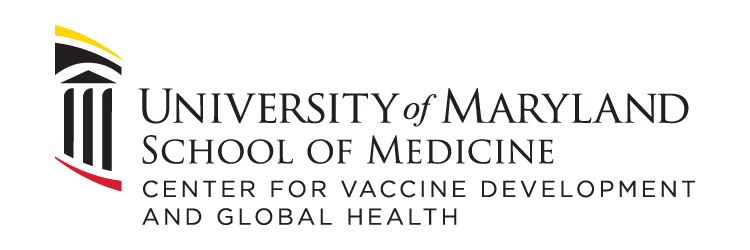February 05, 2021 | Deborah Kotz
UMSOM Uniquely Positioned to Link Basic Science Research to Clinical Trials.
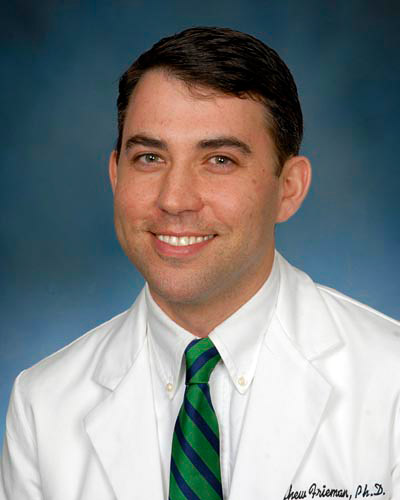
The vaccine is a stable protein that is manufactured from the genetic sequence of the SARS-CoV-2 coronavirus spike protein. As with traditional vaccines like the flu shot, the Novavax vaccine uses adjuvants to boost the immune response in those who receive it.
“We found this vaccine produces high antibody levels leading to significant protection from SARS-CoV-2 in mice. Together with the non-human primate data, this suggests that the vaccine will be highly protective in humans. Our previous work, with Novavax on a MERS coronavirus vaccine and now SARS-CoV-2, demonstrates that continued support of basic science is essential in the response to pandemics,” said study co-author Matthew Frieman, PhD, Associate Professor of Microbiology and Immunology at UMSOM.
The vaccine trial is being conducted by researchers in UMSOM’s Center for Vaccine Development and Global Health (CVD) as part of their National Institute of Allergy and Infectious Diseases-funded Vaccine Treatment and Evaluation Unit (VTEU), and the COVID-19 Prevention Network (CoVPN). It adds to the extensive COVID-19 vaccine research that has been underway on campus since early spring. The UMSOM site is in the process of recruiting up to 500 participants out of 30,000 total who will take part in the trial. The aim is to include diverse populations most impacted by COVID-19. They will include people who have increased risk of exposure because of location or circumstance, such as occupation. Individuals 65 and older, African Americans and LatinX populations, as well as individuals at risk of severe COVID-19, will be represented.
The Novavax vaccine candidate, NVX-CoV2373, is a stabilized, prefusion protein antigen derived from the genetic sequence of the SARS-CoV-2 coronavirus spike (S) protein and is formulated with Novavax’s proprietary adjuvant Matrix‑M™. NVX-CoV2373 contains purified protein antigen and can neither replicate nor can it cause COVID-19.
The vaccine has been in Phase 3 trials in the U.K., with more than 15,000 participants enrolled. Interim data in this event-driven trial are expected as soon as early first quarter of 2021.

About the University of Maryland School of Medicine
Now in its third century, the University of Maryland School of Medicine was chartered in 1807 as the first public medical school in the United States. It continues today as one of the fastest growing, top-tier biomedical research enterprises in the world -- with 46 academic departments, centers, institutes, and programs, and a faculty of more than 3,000 physicians, scientists, and allied health professionals, including members of the National Academy of Medicine and the National Academy of Sciences, and a distinguished two-time winner of the Albert E. Lasker Award in Medical Research. With an operating budget of more than $1.2 billion, the School of Medicine works closely in partnership with the University of Maryland Medical Center and Medical System to provide research-intensive, academic and clinically based care for nearly 2 million patients each year. The School of Medicine has nearly $600 million in extramural funding, with most of its academic departments highly ranked among all medical schools in the nation in research funding. As one of the seven professional schools that make up the University of Maryland, Baltimore campus, the School of Medicine has a total population of nearly 9,000 faculty and staff, including 2,500 students, trainees, residents, and fellows. The combined School of Medicine and Medical System (“University of Maryland Medicine”) has an annual budget of over $6 billion and an economic impact of nearly $20 billion on the state and local community. The School of Medicine, which ranks as the 8th highest among public medical schools in research productivity (according to the Association of American Medical Colleges profile) is an innovator in translational medicine, with 606 active patents and 52 start-up companies. In the latest U.S. News & World Report ranking of the Best Medical Schools, published in 2021, the UM School of Medicine is ranked #9 among the 92 public medical schools in the U.S., and in the top 15 percent (#27) of all 192 public and private U.S. medical schools. The School of Medicine works locally, nationally, and globally, with research and treatment facilities in 36 countries around the world. Visit medschool.umaryland.edu
Contact
Deborah Kotz
410-706-4255
dkotz@som.umaryland.edu
Related stories

Thursday, March 28, 2024
NIH selects Dr. Kathleen Neuzil as Director of The Fogarty International Center
Kathleen M. Neuzil, MD, MPH, Director of the University of Maryland School of Medicine’s (UMSOM) Center for Vaccine Development and Global Health, has been named the 13th director of the Fogarty International Center (FIC), which is part of the National Institutes of Health (NIH). Dr. Neuzil will be the first woman to hold the permanent directorship since the center’s founding in 1968 and will also hold the position of Associate Director for International Research at NIH.

Tuesday, December 10, 2019
UMSOM Researchers to Test Vaccine Designed to Protect Against Serious Illness from Contaminated Food and Water
Each year, millions of people contract serious diarrheal illnesses typically from contaminated food and water. Among the biggest causes of diarrheal diseases are the bacteria Shigella and enterotoxigenic Escherichia coli (ETEC), and researchers at the University of Maryland School of Medicine are testing a vaccine designed to offer protection against these serious pathogens.
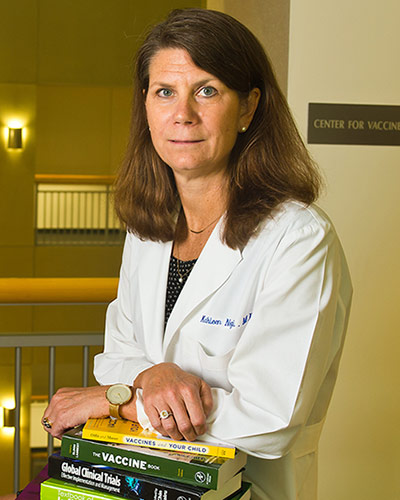
Friday, September 20, 2019
UM School of Medicine's Center for Vaccine Development and Global Health Receives NIH Contract of up to More than $200 Million for Influenza Research
Kathleen Neuzil, MD, MPH, Professor of Medicine and Pediatrics and Director of the Center for Vaccine Development and Global Health (CVD) at the University of Maryland School of Medicine (UMSOM) and Dean E. Albert Reece, MD, PhD, MBA, announced that CVD has been awarded a contract from the National Institute of Allergy and Infectious Diseases (NIAID), with total funding up to more than $200 million over seven years if all contract options are exercised.
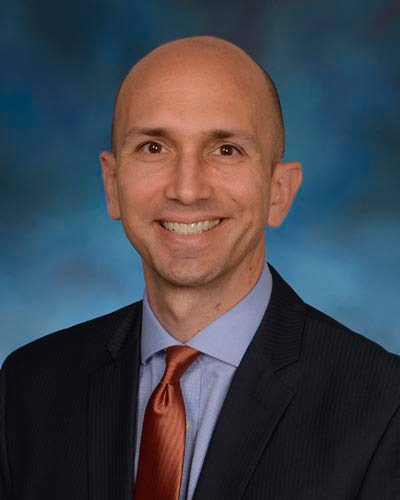
Tuesday, August 13, 2019
UM School of Medicine Researchers Begin Phase 1 Clinical Trial of Vaccine Against Mosquito-Borne Diseases
Mosquito-borne diseases including malaria, dengue and yellow fever, have a severe impact resulting in millions of deaths worldwide, hitting the world’s most vulnerable populations the hardest. Researchers at the University of Maryland School of Medicine (UMSOM) have begun testing an experimental vaccine that is designed to protect against a series of these diseases.
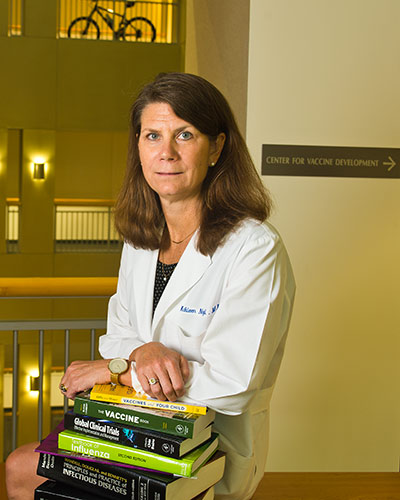
Friday, November 02, 2018
UMSOM Global Health Expert Named to Prestigious World Health Organization Immunization Panel
Kathleen Neuzil, MD, MPH, Professor of Medicine and Pediatrics and Director of the Center for Vaccine Development and Global Health (CVD) at the University of Maryland School of Medicine (UMSOM), has been named to the World Health Organization’s (WHO) Strategic Advisory Group of Experts (SAGE) on Immunization.

Wednesday, June 06, 2018
UMSOM Researchers Find that Silent Carriers of Malaria are Unlikely to Develop the Disease
In regions where malaria illness is widespread, it is common to find many individuals who are infected with malaria parasites (Plasmodium falciparum), but without symptoms. New research conducted by the University of Maryland School of Medicine (UMSOM) shows that treating these silent malaria cases could help stop the spread of malaria to others.

Tuesday, May 15, 2018
Tackling Malaria Transmission in Sub-Saharan Africa
Two malaria experts in the Center for Vaccine Development and Global Health at the University of Maryland School of Medicine wrote a commentary published in the June Issue of The Lancet Global Health discussing the prevalence of malaria in school-age children in sub-Saharan Africa. Miriam Laufer, MD, Associate Professor of Pediatrics and Associate Director for Malaria Research CVD, and Lauren Cohee, MD, Instructor, Pediatrics, noted that often malaria infection is more common in school-age children than younger children and adults.

Friday, May 11, 2018
Honoring Dr. Robert Edelman for Three Decades of Service at UMSOM
Dr. Robert Edelman’s legacy will live long past his tenure at the Center for Vaccine Development and Global Health (CVD). Prior to an esteemed career in academia, he served in the military and the US public health service.

Thursday, May 03, 2018
Low Efficacy Influenza Vaccines Can Still Significantly Avert Infections, Study Shows
Research published in PNAS, showed that even less effective influenza vaccines can still help to reduce illnesses, hospitalizations and other issues as long as the vaccine is broadly administered across age groups.
